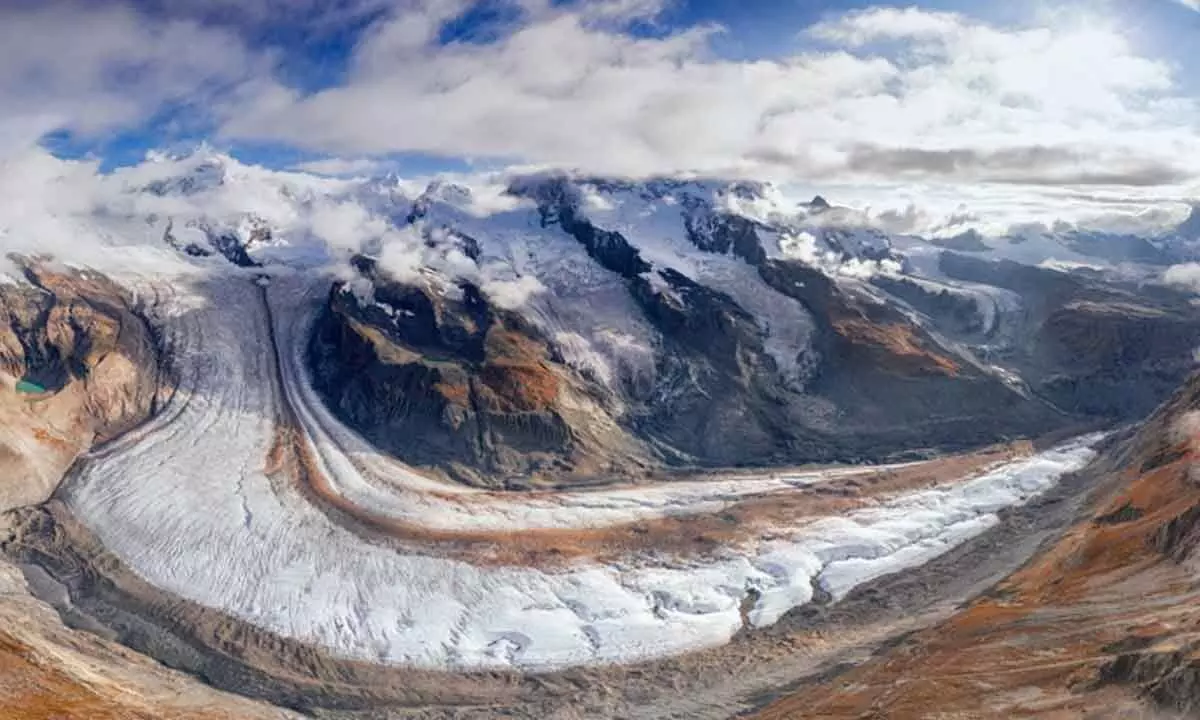Glaciers in the Alps are melting faster

Finally, after what was arguably the worst summer on record for glaciers, snow has begun to fall in the European Alps.
Finally, after what was arguably the worst summer on record for glaciers, snow has begun to fall in the European Alps. It is much needed. Over the 19 years that I have visited and studied the glaciers in Switzerland, I have not seen a summer like 2022.
The scale of change is staggering. Glaciologists like me used to use the word 'extreme' to describe annual ice loss of around 2 per cent of a glacier's overall volume. This year Switzerland's glaciers have lost an average of 6.2 per cent of their ice – extreme indeed.
The new flurries of snow will form a protective blanket to shield and reflect 90% of the sun's radiation back into the atmosphere and limits the warming and melting of the ice beneath. When snow falls over the winter, and then subsequently doesn't melt over the summer, it adds to the mass of a glacier.
Over a few similar years, gravity would take over and glaciers would start to advance downhill. However over the past century, that has not been the case. The protective layers of snow have not been thick enough to offset the warming summer temperatures and on average glaciers around the world have been wasting away since the end of the little ice age in the mid-late 1800s.
Saharan sand and a huge heatwave back to this summer. Across the Alps, the preceding winter had very limited snowfall and therefore glaciers were not well insulated against the forthcoming summer melt season.











